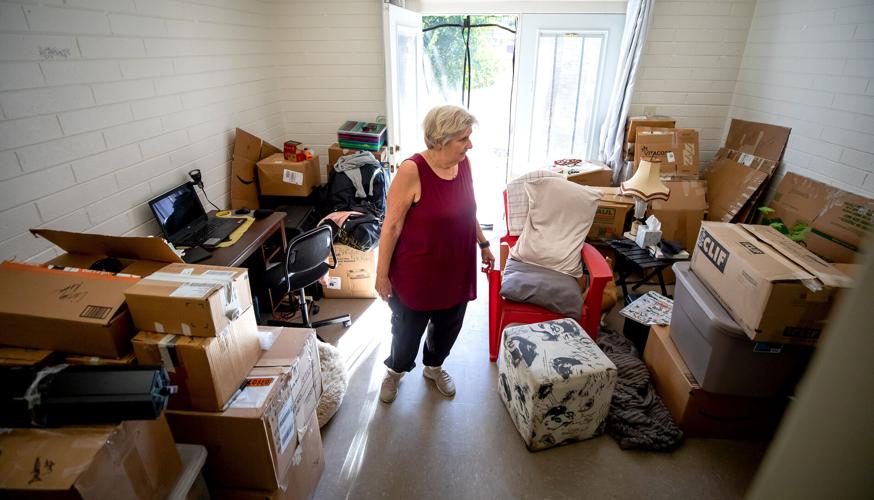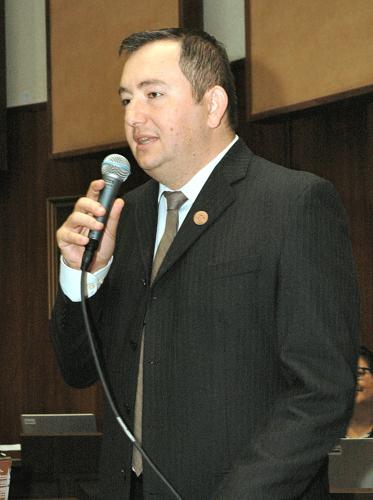In a city where tenants make up nearly half the population, Tucsonans are reacting with fear and anger to news of huge rent hikes at a seniors citizens apartment complex.
But city leaders are helpless to stop “abusive price-gouging” under a state law that prevents local governments from setting limits on how much landlords can charge, Mayor Regina Romero said.
The mayor said she has been getting an earful from city residents since the Arizona Daily Star reported on a San Diego apartment-flipper who has raised rents by 50% or more at several Tucson apartment complexes, including the former seniors complex at 1511 N. Craycroft Road where some tenants say they are being forced out because they cannot afford to stay. The new owner has not responded to numerous requests by the Star for comment.
Some of the calls to city hall are from seniors renting elsewhere in Tucson who worry they might be next, Romero said.
“We need the state to create policies that protect vulnerable residents from obscene rate hikes, or they need to untie our hands so cities and towns can do something about it,” Romero, a Democrat, said in an email interview.
“Municipal governments are closest to the problem and should be able to act on these issues without state interference.”
Republicans who control the state’s legislative agenda say rent control is not the answer. “Absolutely not,” Arizona House majority leader Rep. Ben Toma said in an email interview.
Toma, who owns a Century 21 real estate brokerage, said rent control would not fix the underlying problem: a pressing shortage of affordable housing because the state’s population has for years been growing faster than its housing supply.
He blames local land-use rules. Cities and towns have prioritized construction of single-family homes over apartment projects, which can be controversial because of neighborhood concerns about aesthetics and increased density, he said.
“As housing demand increases in Arizona, so should supply; otherwise the problem will simply continue to compound,” Toma said. He said there is bipartisan support for changes, and he expects several bills to be introduced this session “to address housing affordability throughout the state.”
But talk of future fixes is of little comfort to Tucson tenants currently caught in the squeeze. Some are facing rent hikes much higher than 50%, public records and other documents show.
Rents are rising by as much as 77% at the former Colonia de Tucson, a west-side complex occupied by seniors and families recently purchased by investors from Los Angeles and Chicago for $7.8 million with $300,000 down, land transfer records show. The previous owner, a Miami-area investor, paid $4.9 million for it 18 months ago.
A two-bedroom, one bath unit that used to rent for $675 will soon rent for $1,195 at the 84-unit complex at 1335 W. St. Mary’s Road. The new landlords are offering short-term leases for $950 a month — a 40% increase — until the new higher rate kicks in later this year, tenant notification letters show.
Single mom Laura Gallego, 33, a nail salon technician with three children ages 2 to 9, said she cannot afford the increase. Two of her neighbors, older tenants in their 70s and 90s, are in the same situation, she said.
“It’s scary,” said Gallego, a Tucson native. “I haven’t been able to sleep, and I don’t know what to do.”
Even the property manager said she’s uncomfortable with the 77% increase.
Ann Diaz, president of Arizona 1st Realty Management, said the complex where Gallego lives was “run down,” and the new owners are in the process of making improvements.
The previous owner was operating at a loss, she said, and the new rent is comparable to what other landlords are charging in the area.
Even so, “I feel really bad,” Diaz said. “But I don’t set the rents; the owners do. I’ve been hired to do a job, and if I don’t do what my clients ask me to do, I’ll be replaced by someone who will.”
Diaz, who owns a handful of small Tucson rental properties, said she has not raised rents “because I love my tenants.” But she predicted more big rent hikes are ahead for city residents who live in buildings where current rental rates are well below market rates.
Mark Stapp, a real estate expert at Arizona State University who is opposed to rent control, said there’s no short-term fix for the affordable housing shortage.
“If I started building an apartment project today it would take two years until the first person could move in,” he said in a phone interview.
State and local leaders need to work together on solutions, he said, because lack of affordable housing affects the overall health of communities and could also jeopardize efforts to bring new jobs and employers to Arizona, he said.
“Affordable housing is a critical economic development issue, not just a social issue,” he said. “It doesn’t make us a highly desirable place when a greater percentage of the population finds itself in this situation.”









